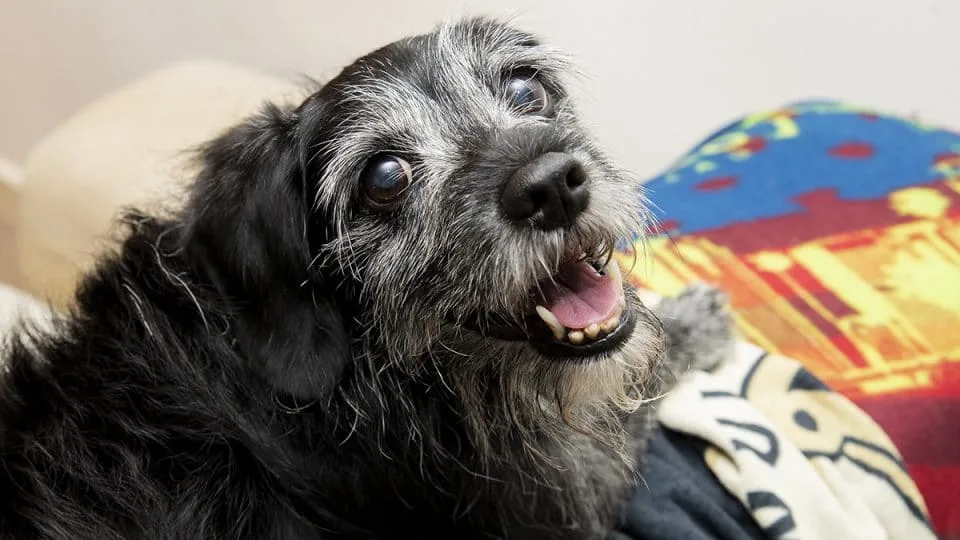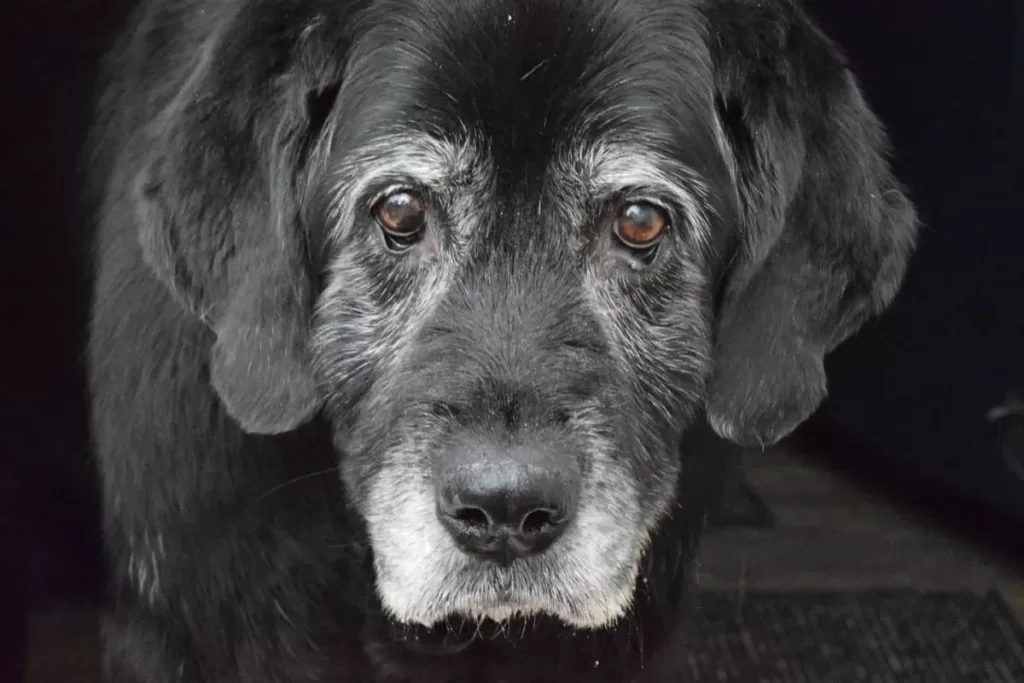Why Do Old Dogs Smell? As a devoted dog parent to my 12-year-old Labrador, Max, I’ve noticed a distinct change in his scent over the years. That familiar “old dog smell” isn’t just my imagination – it’s a real phenomenon that many senior dogs experience. When I brought this concern to my veterinarian, I learned that this change in odor is often linked to various age-related factors.
Table of Contents
I am writing this article to share my personal experience with my first ever dog I have during 2013, prior to my German shepherd, Rocky.
Through my conversations with Max’s vet, I discovered 10 medically-verified causes behind that distinctive senior dog smell:
- Kidney disease leading to toxin buildup
- Diabetes-related chemical changes
- Dental and periodontal issues
- Age-related urinary incontinence
- Reduced self-grooming abilities
- Problematic anal glands
- Digestive system changes
- Skin conditions and infections
- Ear and urinary tract infections
- Natural aging of skin and coat
Understanding these causes has helped me provide better care for Max. Let’s explore each factor in detail to help you understand why your older dog might be developing that characteristic smell – and what you can do about it.
1. Reduced Grooming Ability in Old Dogs
My sweet old Lab, Max, used to be very careful about grooming himself. Now at 12, he has difficulty reaching certain areas during his self-cleaning routine. His arthritis makes it painful for him to twist and bend, especially when trying to clean his back legs and hindquarters.

This reduced mobility leads to a series of hygiene problems:
- Oil buildup on his coat creates that distinct “doggy” smell
- Dead skin cells accumulate faster, leading to a musty odor
- Dirt and debris get trapped in his fur, particularly in hard-to-reach areas
- Matted fur forms in spots he can’t reach, trapping moisture and bacteria
The pain from his joint issues means Max avoids certain movements, leaving some areas completely untouched during his grooming attempts. These neglected spots become breeding grounds for bacteria and yeast, creating those unpleasant odors we’ve noticed.
I’ve learned that what seems like a “normal old dog smell” is actually a sign that Max needs extra help maintaining his hygiene. His reduced grooming ability isn’t just about cleanliness – it’s a direct result of age-related physical limitations affecting his quality of life.
2. Changes in Skin and Coat Due to Aging

As dogs age, their skin and coat undergo noticeable changes that can make them more susceptible to developing odors.
Signs of Aging in a Dog’s Coat
- Thinning fur
- Dryness in the coat
- Loss of shine or glossiness
These changes are often caused by reduced oil production in the skin, which leads to dry, flaky skin. This dryness can make the skin prone to cracks and create an opportunity for various skin conditions such as dermatitis or bacterial and yeast infections to occur.
How Skin Conditions Contribute to Odors
These skin conditions can introduce unpleasant smells that persist despite regular bathing. The musty or sour odors may be difficult to eliminate if the underlying issues are not addressed.
I live in a area where we have lot of dust and sand roll over the surface due to constructions happening in and around. So this can be little un addressable concern and the only care that we can give is frequent bathing and regular grooming.
The Itch-Scratch-Lick Cycle

Frequent scratching or constant licking, which are common behaviors in senior dogs, can exacerbate these problems. Each time my dog licked at an itchy spot, it not only irritated her skin but also spread saliva, which contains bacteria and moisture, making infections more likely.
The cycle of itch-scratch-lick creates an ideal environment for odors to develop, especially if dermatitis or infection takes hold.
3. Weakened Digestive and Excretory Systems in Senior Dogs
My sweet old Lab, Max, started having digestive issues around age 11. I noticed he’d developed a rather pungent smell, which my vet explained was linked to his aging digestive and excretory systems.
Senior dogs often experience these common issues:
- Increased Flatulence: Aging digestive systems become less efficient at breaking down food, leading to excess gas production and that unmistakable smell that seems to follow them around
- Urinary Incontinence: Many older dogs develop weak bladder control, resulting in occasional accidents or dribbling. The urine can soak into their fur, creating that distinct ammonia-like odor that’s hard to eliminate even with regular bathing
- Impacted Anal Glands: These small sacs near the rectum can become blocked or infected in senior dogs, producing an intense fishy smell. My vet showed me how these glands sometimes need manual expression to prevent buildup and reduce odor
These digestive and excretory changes aren’t just inconvenient – they can signal underlying health issues. I learned to track Max’s symptoms and schedule regular vet check-ups to catch any potential problems early.
4. Dental Disease and Bad Breath in Older Dogs
My 12-year-old Labrador’s breath became unbearable – a tell-tale sign of dental disease that many senior dogs face. During our vet visit, I learned that periodontitis affects nearly 85% of older dogs, causing that distinctive foul odor we often associate with aging pets.
How Dental Disease Progresses
The progression typically follows this pattern:
- Plaque builds up on teeth, harboring harmful bacteria
- Bacteria multiply beneath the gum line, causing infection
- Gums become inflamed and start receding
- Tooth decay and bone loss develop
- Pockets of infection form, creating severe halitosis
Signs of Dental Disease in Dogs
These dental issues don’t just cause bad breath – they’re incredibly painful for our furry friends. My dog showed subtle signs I initially missed:
- Pawing at the mouth
- Dropping food while eating
- Blood spots on chew toys
- Visible brown or yellow teeth
- Swollen, red gums
Regular dental check-ups revealed hidden infections beneath seemingly normal-looking teeth. Professional cleaning under anesthesia removed deep-seated bacteria that home brushing couldn’t reach, significantly improving my dog’s breath and comfort level.
5. Underlying Health Conditions Affecting Dog Odor
When my senior dog started developing unusual odors, my vet identified several health conditions as potential culprits. The most concerning was kidney disease, which caused my dog’s breath to smell like ammonia due to toxin buildup in his bloodstream.
Dogs with diabetes can emit a distinct sweet smell, similar to nail polish remover. I noticed this scent on my friend’s diabetic dog, particularly in their breath and urine. The vet explained this happens when the body starts breaking down fat instead of glucose.
Allergies create a different type of odor challenge. My dog’s skin allergies led to excessive scratching, creating moist, warm areas perfect for yeast growth. This resulted in a musty, bread-like smell that wouldn’t go away with regular baths.
Common health-related odors to watch for:
- Fishy smell → Anal gland issues
- Strong urine odor → Urinary tract infections
- Yeasty smell → Skin infections
- Sweet, fruity breath → Potential diabetes
- Ammonia-like breath → Possible kidney problems
These odors often signal underlying health issues requiring immediate veterinary attention. Regular health checks help identify these conditions early, making treatment more effective.
6. Decline in Sense of Smell Impacting Odor Perception
I noticed my senior dog Max wasn’t as attentive to his grooming routine as he used to be. After consulting with our vet, I learned that aging dogs experience a decline in their sense of smell, affecting their ability to detect their own body odors.
Dogs rely heavily on their sense of smell for self-grooming. When this sense diminishes:
- They become less aware of dirt and debris on their coat
- Natural cleaning behaviors decrease
- Personal hygiene routines change dramatically
The vet explained that this reduced sense of smell creates a cycle:
- Decreased odor detection → Less motivation to groom
- Reduced grooming → Accumulation of oils and dirt
- Built-up debris → Stronger odors develop
This decline in smell also impacts other areas. My dog stopped responding to:
- Food smells that once excited him
- Territorial marking spots during walks
- Familiar scent-based games
Understanding this connection between smell perception and grooming helped me adapt our care routine. Now I schedule regular grooming sessions to compensate for Max’s reduced self-maintenance, keeping those unwanted odors at bay.
Managing Old Dog Smell: Practical Tips for Pet Owners
After countless vet visits and research, I’ve discovered effective ways to manage my senior dog’s odor. Here’s what worked for us:

Daily Care Routine:
- Brush teeth with dog-specific toothpaste
- Wipe face and body with pet-safe cleansing wipes
- Clean ears using veterinary-approved solutions
- Regular brushing to distribute natural oils and remove debris
Weekly Maintenance:
- Gentle baths with senior dog shampoo
- Professional grooming appointments
- Washing bedding and blankets
- Checking and expressing anal glands if needed
Health Management:
- Schedule regular vet check-ups
- Monitor for signs of infections or disease
- Keep up with prescribed medications
- Address incontinence with proper products
Environmental Controls:
- Use washable pee pads in sleeping areas
- Place air purifiers near dog’s favorite spots
- Clean accidents immediately with enzymatic cleaners
- Maintain a consistent bathroom schedule
Diet Considerations:
- Feed high-quality senior dog food
- Add supplements recommended by your vet
- Provide fresh water throughout the day
- Monitor food sensitivities that might cause gas
Remember: Strong or sudden changes in your senior dog’s smell could signal health issues. Trust your nose – if something seems off, contact your veterinarian.
FAQs (Frequently Asked Questions)
Why do old dogs develop a strong odor compared to younger dogs?
Old dogs often develop a stronger odor due to several factors including reduced grooming ability caused by arthritis and mobility issues, changes in skin and coat condition with age, weakened digestive and excretory systems leading to flatulence and incontinence, dental diseases like periodontitis causing bad breath, and underlying health conditions such as kidney disease or diabetes that affect body odor.
How does reduced grooming ability in senior dogs contribute to unpleasant smells?
As dogs age, arthritis and mobility problems can limit their ability to groom themselves effectively. This leads to the accumulation of oils, dander, dirt, and potential skin infections on their skin and coat, which in turn causes an increase in dog skin and coat odor.
What skin and coat changes occur in older dogs that cause bad smells?
Older dogs are more susceptible to skin conditions such as dermatitis and infections. Frequent scratching or licking due to irritation can exacerbate these issues, resulting in unpleasant odors emanating from the dog’s coat and skin.
In what ways do dental diseases affect the smell of senior dogs?
Dental problems like periodontitis are common in older dogs and cause infections and decay within the mouth. This leads to halitosis (bad breath), which significantly contributes to the overall odor associated with senior dogs.
Can underlying health conditions cause distinctive odors in aging dogs?
Yes, medical conditions such as kidney disease, diabetes, allergies, urinary tract infections, and anal gland problems can alter a dog’s breath, urine, or skin scent. These changes result in distinctive odors that often indicate the presence of such health issues in senior dogs.
What practical tips can pet owners follow to manage and reduce old dog smell?
To manage old dog odor effectively, pet owners should ensure regular grooming tailored for senior dogs, maintain dental hygiene through routine check-ups and cleaning, monitor for any signs of health issues like kidney disease or diabetes, address mobility problems to aid self-grooming where possible, and consult veterinarians for appropriate treatments. Additionally, keeping the dog’s living environment clean helps minimize odors.

